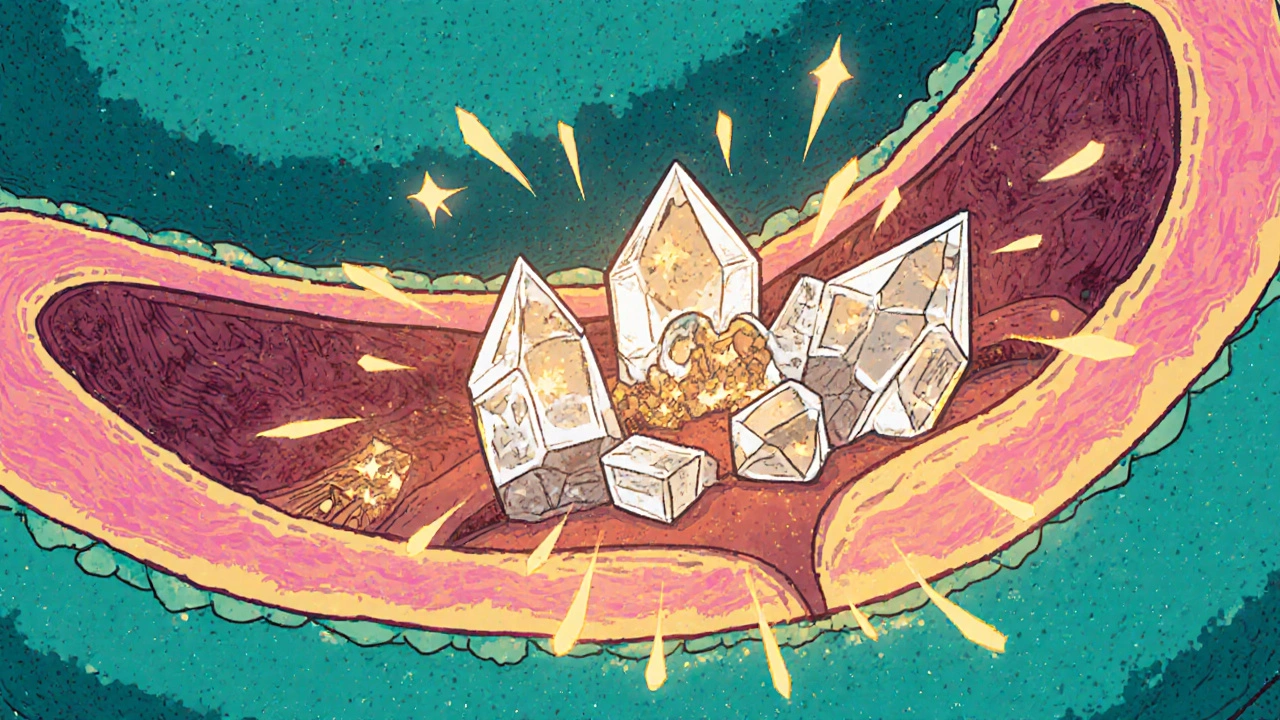Kidney Stones: Causes, Treatments, and What Actually Works
When you hear kidney stones, hard mineral deposits that form in the kidneys and can block urine flow. Also known as renal calculi, they’re not just a nuisance—they can cause sharp, sudden pain that makes you double over. These aren’t rare. About 1 in 11 people in the U.S. will get one in their lifetime, and they often come back if you don’t change your habits.
Kidney stone pain, the intense, cramping discomfort that starts in your back and moves to your lower belly or groin doesn’t come from the stone itself moving—it’s the ureter spasming as it tries to push the stone out. The size matters: stones under 5mm often pass on their own, but anything bigger usually needs medical help. And yes, dehydration is the #1 trigger. If you don’t drink enough water, your urine gets too concentrated, and minerals like calcium and oxalate stick together instead of flushing out.
Kidney stone treatment, ranges from simple hydration to shockwave therapy or minimally invasive surgery, depends on the stone’s size, location, and your symptoms. Most people get through it with painkillers and fluids, but if you’re vomiting, running a fever, or the stone won’t budge, you need to see a doctor fast. Some meds, like tamsulosin, can relax the ureter and help the stone pass faster. Others, like thiazide diuretics or citrate supplements, are used long-term to stop new stones from forming.
And here’s the thing: what you eat plays a bigger role than you think. Cutting back on salt helps. So does avoiding too much animal protein. But you don’t need to avoid calcium—actually, getting enough from food (not supplements) lowers your risk. Oxalate-rich foods like spinach, nuts, and beets? Moderation is key. And if you’ve had one stone, you’ve got a 50% chance of getting another in 10 years—unless you take action.
Kidney stone prevention, means drinking more water, watching your diet, and sometimes taking prescribed meds. A simple rule: aim for at least 2.5 liters of urine a day. That’s about 3 liters of fluid, mostly water. Lemonade and orange juice help too—they contain citrate, which stops crystals from forming. Skip the sugary sodas. They’re linked to higher stone rates. And if you’re overweight, losing even a little can cut your risk.
You’ll find real stories here—how people managed pain, what worked (and what didn’t), and the small daily changes that kept stones from returning. No fluff. No guesswork. Just clear, practical info based on what actually helps people get through this and stay stone-free.

